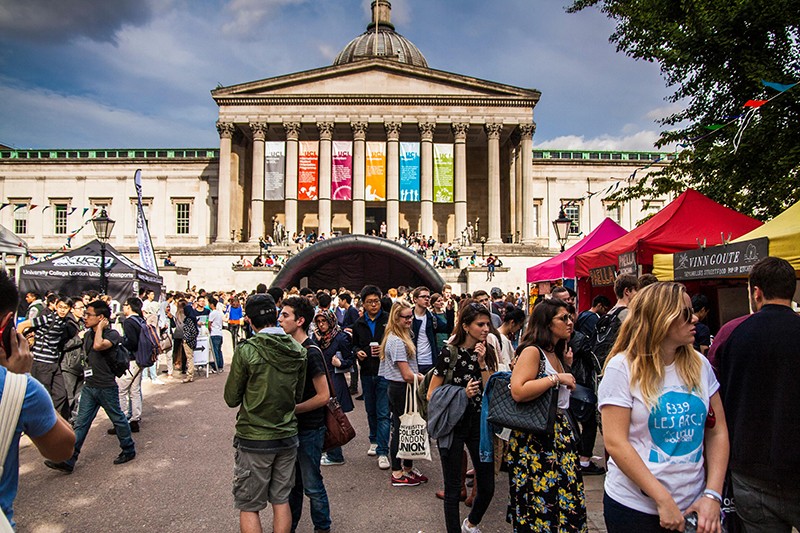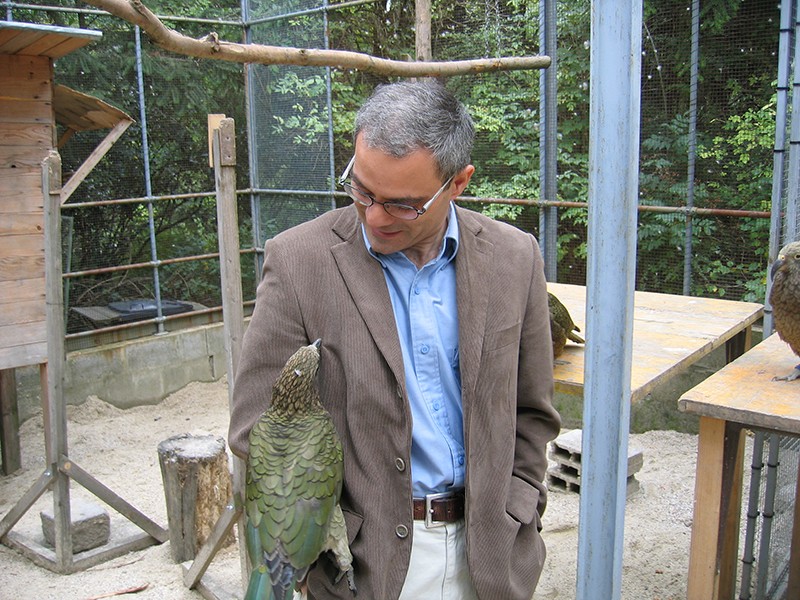Black students face barriers progressing to PhD programmes, and experience other career setbacks, because they are more likely to receive lower undergraduate degree classifications than their white peers, an analysis by a leading UK university has found.
The study, based on exam and coursework data, and published in the journal eLife, proposes strategies to tackle an unexplained “award gap” between undergraduate students who are white and those who are from minority ethnic groups (L. Cramer eLife 10, e58971; 2021).
The gap, first identified more than 25 years ago (see go.nature.com/3czqjus), refers to differences in academic performance between white students and those from Black, Asian and minority ethnic (BAME) communities. It persists, the paper finds, despite students from both groups having similar grades, on average, in their A-levels, the exams used by UK universities to select students for admission to undergraduate courses. Similar award gaps have been reported in other countries, the paper notes, including the Netherlands, the United States and Australia.
In March 2020, the Royal Society reported that, in 2018–19, white students were twice as likely (35.7% compared with 17.9%) to graduate with first-class honours degrees in science, technology, engineering and mathematics (STEM) than were their Black colleagues (see go.nature.com/3ehrhbd).
UK honours degrees are classified as first class, for scores of 70% or higher; upper second (2:1), for 60–69%; lower second (2:2), for 50–59%; and third, for 40–49%. A first or upper second (equating to a score of 60% or higher) is considered a ‘good’ degree.
The paper warns that students without a first- or upper second-class degrees are likely to miss out on grants for graduate programmes, and are less likely to be able to access opportunities in highly sought-after research programmes at the most high-profile institutions. This disparity, says Louise Cramer, who conducted the study, could make those students’ paths to the upper echelons of academia more difficult, with the result that fewer will reach them.
Also, the implications of that award gap for pay and opportunities “snowball” as these students progress in their careers, says Cramer, who leads a team researching cytoskeleton mechanisms in cell polarity and cell migration at the MRC Laboratory for Molecular Cell Biology, University College London (UCL). “Not having that higher step at the beginning means your next step may not be so high.”
“If graduates from minority ethnic groups want to stay in academia, the degree-award gap reduces their chances of getting a PhD position, particularly entry to the most competitive fully funded programmes,” she adds. “If they don’t want to stay in academia, they’re less likely to get a graduate-level job within one year after graduation, so immediately it impacts their first step and maybe their whole career and pension.”
Cramer assessed the results of 792 students who completed a cell biology module in academic years 2013–14 to 2018–19 at UCL, as part of the first, second or third year of their undergraduate programmes in biosciences or natural sciences; 47% of those students self-identified as members of a minority ethnic group, but, compared with their white counterparts, proportionately fewer of them were awarded good grades for cell biology (the average grade gap between the two groups was 8–13 percentage points).
Stereotype threat
It was not these students’ ability that was responsible for the award gap in these modules, but something that was happening in the university itself, says Cramer, who points out that all the students had entered university with similar A-level grades.
Cramer notes that the award gap in the cell biology modules was much greater for exams than for coursework, and suggests two possible reasons. The first is that the exams are essay-based, whereas the coursework is assessed in a range of ways. The second is that the exam process itself can be a form of ‘stereotype threat’ — in which negative perceptions about a specific group of people set them up to fail and thereby fulfil that stereotype.
When it comes to explaining the awards gap in undergraduate degrees as a whole, student experience might be a factor because BAME students often report experiencing racism on campus, and feeling that they do not fit in or that it’s not safe to speak up about different backgrounds and experiences (see Nature 597, 435–438; 2021). These backgrounds are also often excluded from the curricula.
Kingston University in London, Brighton University and University of the Arts London have introduced measures to reduce the undergraduate award gap, although it is unclear which of these actions has had the most impact, Cramer says. They include taking steps to ‘decolonize’ curricula, by making the educational practice more inclusive; increasing training in unconscious bias; the blind marking of papers; giving students more feedback; and trying to nurture students’ feeling of belonging.
For the past 10 years, the undergraduate degree-award gap has narrowed by just 0.5% per year, she adds. “It’s going to take decades to close this gap. We can’t wait for that to happen — we’ve got to reduce the award gap and change recruitment criteria.”
Breaking barriers
The London Interdisciplinary Biosciences Consortium, a collaboration between eight leading universities including UCL, has removed the requirement for students to have a first-class degree to be accepted for PhD funding. And several PhD programmes in the United States, including Tetrad at the University of California, San Francisco, no longer require applicants to have passed the Graduate Record Examinations (GRE) test, a standardized admissions test used by many US graduate schools. As a result of these and other measures, such as introducing summer research-training programmes for undergraduates, these institutions have seen a twofold to fourfold increase in students from minority ethnic groups in their PhD programmes, Cramer says.
Students from these groups fall out of the academic pathway early on, she adds. Nearly one-quarter of UK undergraduate-degree holders (23.69%) are from minority ethnic groups, but that proportion falls to 18.07% for PhD students and to 10.7% for postdocs, the paper points out.
The study notes that introducing steps to close the award gap — such as increasing the number of academics per student and hiring departmental staff to analyse performance data — will be expensive, and that “academics already work excessive hours just to get their ‘regular’ job done”.
A sense of belonging
Kevin Laland, a behavioural and evolutionary biologist and the only person of colour on the academic staff in the biology department at the University of St Andrews, UK, says: “I don’t teach a lot of students, so most who study biology here will not see a single Black or Asian lecturer or a lecturer from any other minority ethnic group” during their four-year degree. “It is easy for them to fall into the trap of thinking that they don’t belong, that they’re outsiders, that they don’t identify with what’s being taught — and if that is the case, that can be a very alienating and demotivating experience,” he adds.
Universities need to decolonize curricula to remove Western bias, and look at recruitment and promotion practices for academic faculty and staff members to ensure that students from minority ethnic groups are taught by more people with whom they can identify, he says.
In STEM subjects, only 3.5% of Black and 6.6% of Asian academic staff were professors in 2018–19, compared with 11.9% of white staff (see go.nature.com/3aa9r9). Faculty members from these groups were also less likely to be involved in teaching, with 48.3% having a research-only academic contract, compared with 32.3% of their white counterparts (see go.nature.com/3ehrhbd).
Laland suggests that universities build on their successes in tackling gender bias. Since 2011, St Andrews has been a member of the Athena SWAN Charter (a framework used internationally to support and transform gender equality in higher education and research). The university implemented a number of actions, he says, including scrutinizing the wording of job advertisements, developing recruitment templates to ensure that guidelines were followed, implementing bias training, and offering flexible working and child care. “Collectively, we went from having extremely male-biased recruitment, to having no gender bias in our recruiting,” he says. “No marginal gain is too small to be dismissed.”
"that" - Google News
September 27, 2021 at 05:17PM
https://ift.tt/3zEKZZi
How to shrink the gap that holds Black scientists back - Nature.com
"that" - Google News
https://ift.tt/3d8Dlvv







Tidak ada komentar:
Posting Komentar